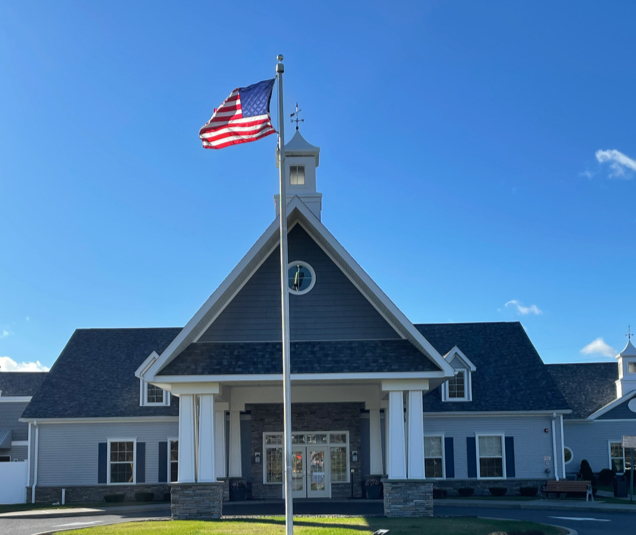Caring for a loved one with dementia or Alzheimer’s can feel overwhelming, especially when you’re managing their needs around the clock. The challenges of memory loss affect not just your loved one, but your entire family as you navigate behavioral changes, safety concerns, and the emotional weight of watching cognitive decline progress.
Fortunately, you do have options. Respite care offers specialized, temporary support for seniors with memory loss, enabling you to take a break and maintain your own well-being. Through professional memory care services and short-term care options, you can access expert dementia care without making long-term commitments. Understanding when memory care becomes necessary helps families make informed decisions about respite services.
Key Takeaways
- Respite care provides temporary relief for family caregivers of seniors with dementia and Alzheimer’s.
- Short-term care options include in-home services, adult day programs, and memory care communities.
- Memory care respite services provide specialized support for individuals facing cognitive decline challenges.
- You can explore respite options without committing to long-term senior living arrangements.
What Services Can Memory Care Respite Provide?
When your loved one faces cognitive decline from dementia or Alzheimer’s, traditional caregiving approaches often fall short. You find yourself managing sundowning behaviors, preventing wandering, and dealing with confusion that can escalate without specialized intervention.
Memory care respite services are provided by trained professionals who understand the complexities of cognitive decline and dementia. These caregivers use proven techniques to redirect confusion, create calming environments, and maintain meaningful connections with your loved one.
The Peregrine Way®
At Peregrine Senior Living at Colonie, we honor our residents’ unique experiences and help them reconnect with their long-term memories through personalized services, engaging events, and family involvement. We help residents connect with their long-term memories through activities like pet therapy, sports rooms, spiritual programs, exercise, music, and more!
This specialized support goes beyond basic supervision. Respite caregivers engage your loved one in meaningful activities designed to stimulate remaining cognitive abilities while ensuring their safety and dignity remain intact throughout their care.
What Types of Short-Term Memory Care Options Are Available?
Professional In-Home Dementia Care
A trained memory care professional visits your home to provide specialized support in a familiar setting. They understand how to work with confusion, manage behavioral changes, and maintain routines that comfort your loved one.
This option works well when your loved one feels more secure in their own environment. The caregiver provides supervision, medication assistance, and engaging activities while you attend to other responsibilities.
Adult Day Programs for Cognitive Decline
These programs offer structured activities and social interaction designed explicitly for seniors experiencing memory loss. Your loved one receives cognitive stimulation and companionship while you handle work or personal needs.
Many programs include transportation and meals along with staff trained in dementia care approaches. The structured environment provides mental engagement without overwhelming your loved one’s cognitive abilities.
Memory Care Community Respite
Memory care communities provide comprehensive respite services in secure environments specifically designed for individuals experiencing cognitive decline. Your loved one receives around-the-clock care from staff who specialize in dementia and Alzheimer’s support.
These communities offer structured programming, secure outdoor areas, and dining experiences tailored for individuals with memory loss. The environment reduces confusion through thoughtful design and clear navigation paths, creating secure and comfortable spaces that facilitate cognitive challenges.
How Do I Know When My Family Needs Memory Care Respite?
Caring for someone with Alzheimer’s or dementia creates unique challenges that affect your physical and emotional health. Respite care becomes valuable when you feel isolated, exhausted, or concerned about providing appropriate care for complex memory-related needs. These are symptoms of caregiver burnout, which can severely impact your health in the long term if not dealt with.
You might also need temporary care during your own medical appointments, family emergencies, or when you simply need time to rest and recharge. Having access to reliable memory care respite prevents crises and supports your long-term caregiving abilities.
How Can I Choose the Right Memory Care Respite Support?
Begin by assessing your loved one’s current cognitive abilities and their specific care needs. Consider how they respond to new environments and unfamiliar people, as this affects which respite option might work better.
Ask potential respite providers about their specific experience with caring for individuals with dementia and Alzheimer’s disease. Look for comprehensive staff training in memory care techniques and inquire about how they handle challenging behavioral situations. Learning about what to expect from memory care helps you ask the right questions during your evaluation process.
Visit different respite options to observe the environment and staff interactions. Trust your observations about which caregivers seem to connect naturally with your loved one and create positive experiences.
Find Relief For Your Family At Peregrine Senior Living at Colonie

At Peregrine Senior Living at Colonie, we understand the complexities families face when dealing with cognitive decline. Our memory care respite services offer a warm, supportive environment where your loved one receives specialized attention while you take the break you need.
Contact us today to schedule a tour and discover how our respite care programs can support your family’s journey with memory loss.













Learn and experience insider tips, considerations and real guidance that only experts can provide in-person!
Hope to see you there! 🙂 ... See MoreSee Less
0 CommentsComment on Facebook
Dining at our community is about more than what’s on the plate—it’s about connection, community, and the joy of gathering together.
Our talented culinary team crafts meals that are both delicious and nutritious, offering flavors that comfort and inspire.
From themed dinners to chef demonstrations, each meal becomes an opportunity to savor the moment and celebrate life’s simple pleasures. 🍴
peregrinecolonie.com/ ... See MoreSee Less
0 CommentsComment on Facebook
Today we celebrate the caregivers—those whose quiet strength and unwavering compassion bring comfort to so many.
We see the difference caregivers make every day: holding a hand, sharing a smile, or offering reassurance when it’s needed most. 💕
Your dedication reminds us that true care goes beyond tasks—it’s an act of love, patience, and humanity.
Thank you for all you do to make the world a more compassionate place.
peregrinecolonie.com/ ... See MoreSee Less
2 CommentsComment on Facebook
Peregrine Cooking Demo with Chef Patrick! 🧑🍳
In honor of the Olympics being hosted in Italy, we learned about the history of Italian cuisine, made our own dough from scratch, and crafted personalized calzones! 🇮🇹 They were delizioso! 😋 ... See MoreSee Less
1 CommentsComment on Facebook
Red roses?? I thought you said wet noses!!
We puckered up for some puppy lovin’ at our Kissing Booth! 💋🐾
Happy V-Day from our cutest valentines, Abby & Charlie! 🐶❤️ ... See MoreSee Less
1 CommentsComment on Facebook
Relationship advice loading 🔄 our ladies shared their words of wisdom while enjoying fresh, homemade chocolate covered strawberries and sugar cookies.
What do you think is the Secret to Love?? 💕 ... See MoreSee Less
3 CommentsComment on Facebook
Happy Valentine’s Day! ❤️
Love takes many forms—between partners, friends, families, and even across generations.
Today we celebrate the love that fills our community: the care shared between residents and team members, the laughter that brightens our halls, and the sense of belonging that reminds us we’re never alone.
May your day be filled with connection, warmth, and heart.
peregrinecolonie.com/ ... See MoreSee Less
0 CommentsComment on Facebook